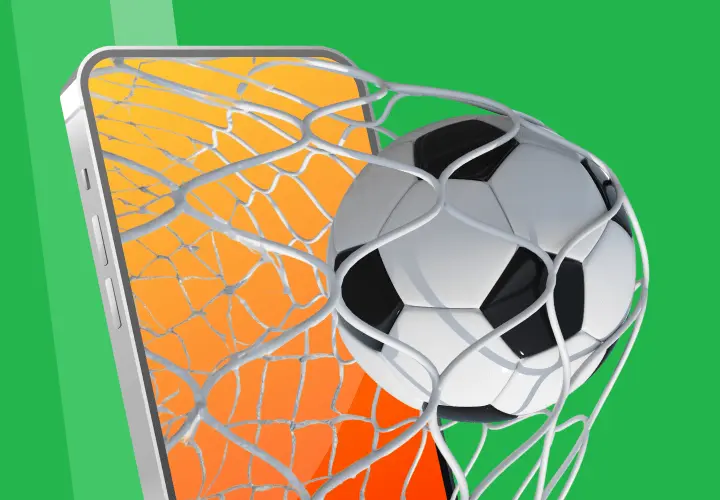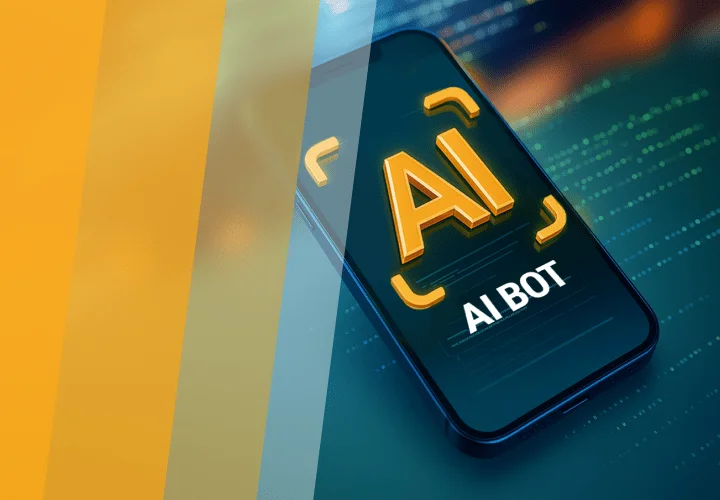How to Employ Gamification in E-commerce to Generate Sales: 5 Inspiring Examples
Table of contents
Game-like elements are incorporated in business operating in various industries, including e-learning and healthcare. In recent years, E-commerce businesses have been employing gamification tools and techniques to generate sales and improve customer loyalty, too. According to a survey conducted by Ask Your Target Market, 38% of people said they like it when companies include games or interactive features along with the shopping experience. This trend is set to accelerate, with the global gamification market projected to reach USD 61.30 billion by 2030, exhibiting a CAGR of 25.85% (Mordor Intelligence, 2025). The retail sector already holds a significant share of this market, accounting for 28.5% of total gamification revenue in 2024.
In our blog post, we’ll dive deep into the essential benefits of E-commerce gamification and provide real-life examples employed by top retail brands, while also looking ahead at the future of this powerful strategy.
What Is Gamification?
Gamification is the strategic attempt to enhance systems, services, organizations, and activities in order to create similar experiences to those experienced when playing games in order to motivate and engage users.’’ (Definition by Wikipedia)
Gamification is implemented across all industries by adding game-like elements to the processes for entertaining and engaging customers. The retail industry is one of the key ones where it’s applied.
In digital times, consumers can purchase products in many different ways by going to a traditional brick and mortar store or visiting an online shop through a website or application. Thus, retailers have to be creative in the way they attract customers and retain them. By integrating gaming elements into their shopping delivery processes, they improve the shopping experience of their customers, making it more enjoyable.
Key Benefits of Gamification in E-commerce
- Boost Customer Engagement and Sales
Marketing gamification tools, if applied well, significantly increase customer engagement with a retailer's brand and consequently boost sales. According to a gamification report, 60% of consumers said they would be more likely to buy from a brand if they enjoyed playing a game with it. Research also shows that gamified elements can increase user engagement on e-commerce platforms by 35% and boost conversion rates by up to 25%. The "dopamine effect" from anticipating rewards makes shopping more exciting, leading to longer Browse sessions and higher conversions.
- Enhance Brand Awareness and Customer Retention
Retail brands are always in search of new ways to reach a new audience and retain existing customers. Gamification implemented in the online retail industry provides customers with an opportunity to get acquainted with a brand in an unobtrusive, fun way. These interactions ensure a positive attitude towards the brand and foster long-term loyalty. Gamified loyalty programs, for instance, can boost customer retention by 22% (AmplifAI, 2025).
- Increase First-Party Data Collection & Personalization
Gamified content on your website or app encourages customers to leave an email or provide other valuable first-party data for rewards. This technique is especially effective for sales events like Black Friday, as customers are even more engaged to grab a discount coupon. This also contributes to increased loyalty, as nearly 70% of shoppers would buy directly from a brand that offers discounts, coupons, or points toward their next purchase (Yotpo). Beyond this, gamification provides rich behavioral data that can be fed into AI-powered personalization engines to tailor offers and experiences even more precisely.
- Foster Community and Social Sharing
Gamification leverages human desires for social connection and competition. Features like leaderboards, shared challenges, and the ability to showcase achievements encourage users to share their experiences on social media. Gamified content is shared significantly more than non-gamified content, leading to organic reach and increased brand visibility.
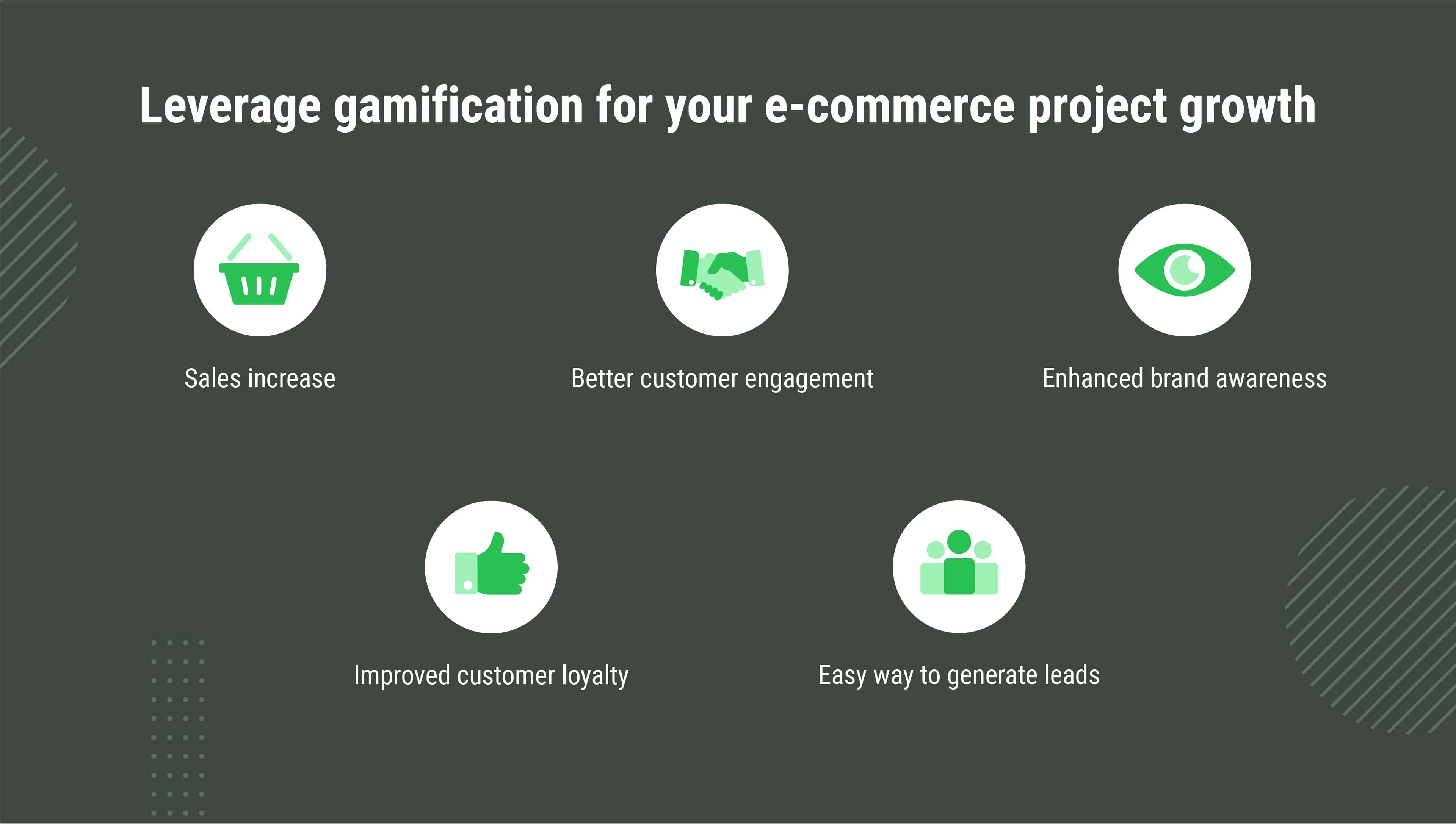
How to Gamify Your E-commerce Website or App?
In 2020, mobile games accounted for 72% of app store spending across all app stores. The younger the generation, the likelier they are to play games. As the Consumer Insights research noted, about 81% of Gen Z gamers reported playing games in the past six months. Why not leverage this consumer trend?
The gamification of non-gaming applications is not new. Famous retail brands like AliExpress and Nike gamify their e-commerce apps by adding gaming features to the essential functionality. Why? E-commerce apps with in-app game experiences can bring more sales and attract more new customers to your online store. The essential driver that will encourage customers to play is the reward they will receive at the end of the game. There are plenty of reasons for rewarding users, including giving them a prize or discount if they share a game with friends or their achievements on social media.
Retailers can also gamify their e-commerce website to encourage customers to make more purchases and return to repeat their shopping experience. Here are a few gamification website examples to consider:
- Implement quizzes, challenges, and quests: Transform routine interactions into engaging missions. This can include quizzes about product knowledge, challenges to achieve fitness goals (for a sportswear brand), or quests to explore different parts of the website or app.
- Give rewards and badges for achievements: Recognize user progress and accomplishments with virtual badges, points, or unique digital collectibles. These can be tied to purchases, referrals, reviews, or engagement milestones.
- Offer loyalty programs with tiered progression: Elevate standard loyalty programs by introducing levels, status tiers, and exclusive perks that unlock as customers accumulate points or complete challenges.
- Build virtual communities and leaderboards: Encourage friendly competition and social interaction. Leaderboards can display top spenders, most active users, or challenge victors, fostering a sense of community and driving engagement.
- Integrate "Spin-to-Win" or "Scratch-and-Win" pop-ups: These provide instant gratification and a sense of excitement, encouraging users to engage and potentially convert with discounts or prizes.
- Progress Bars: Visually show users how close they are to achieving a reward (e.g., free shipping threshold, next loyalty tier), leveraging the psychological satisfaction of completion.
- Augmented Reality (AR) & Virtual Try-Ons: Incorporate AR for immersive product experiences, allowing users to virtually try on items or place them in their environment, turning product exploration into a fun, interactive game.
- Mystery Rewards & Loot Boxes: Introduce an element of surprise and unpredictability, tapping into dopamine triggers and enhancing emotional gratification.
If gamification is applied well, it works efficiently. To demonstrate to you that gamification really works in retail, we’ve compiled five notable game-like campaigns successfully implemented by famous retail brands.
5 Inspiring Gamification Examples in E-commerce
AliExpress
AliExpress offers a great example of gamification implementation in e-commerce apps. The retailer incorporated a game in their shopping application. By playing their game “Bubble Challenge’’, customers can earn coins to exchange them into special AliExpress two-dollar coupons, coupons provided by sellers, etc.
This gamification innovation made AliExpress one of the most popular platforms for online shopping. Their gaming section helps to retain customers by providing an engaging experience of obtaining discounts.
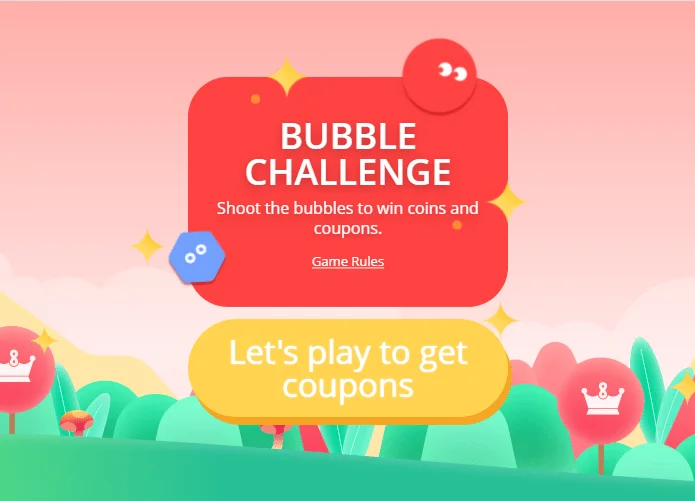
Nike Run Club
Another worthwhile case-study of gamification in retail is the Nike Run Club App that was initially created to motivate people to keep their training consistent. The app offers not only training related features such as GPS-tracking or guided workout but also in-app challenges that enhance user engagement. By participating in the challenges that are available for a limited time, Nike app’s users compete with friends or other users. Every time users complete a challenge, they unlock achievements to get prizes. This makes customers more engaged, while the urgency of the challenge retains customers within Nike’s community.
A customized approach is extended through personalized messages used to congratulate on wins. The retailer also applied the social learning technique enabling users to share their running experience and achievement by photos and badges.
The gamification elements helped Nike to increase the market share they controlled in three years. Compared to 46% of the running shoe market controlled by Nike, it has grown up to 61% in 2009.
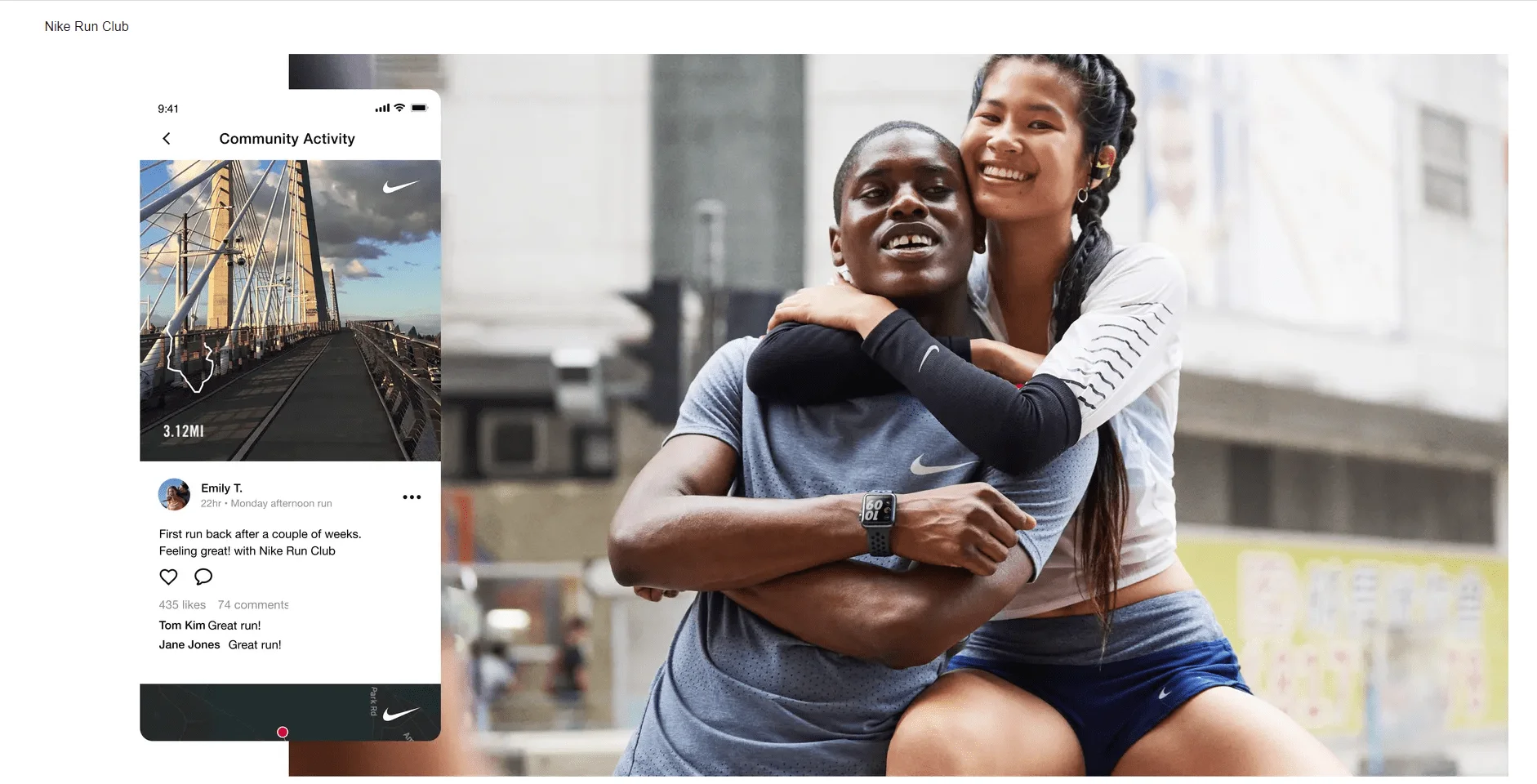
Burger King
Let’s look at one more example of how gamification is used in e-commerce apps: Burger King’s ‘’Whopper Detour’’. Thanks to gamification, the fast food chain generated 1.5 million downloads of its upgraded application. How did they do it?
According to the game-like challenge presented by Burger King, customers had to download their app and find a McDonald’s restaurant within 600ft to activate the offer: a one-cent Whopper. Once the order was placed, the app navigated the user towards the nearest Burger King’s restaurant. As a result, the gamification made Burger King’s app the most downloaded app in the Apple App Store for several days.
This is not the only example of how the fast food chain incorporates marketing gamification to boost their sales. As per Wall Street Journal, Burger King’s sales in the USA rose 0.8% in 2018.
Lamoda
Under the impact of COVID-19, retailers should employ new technology innovations to provide a shopping experience similar to the one in a physical store. One of the retailers that have already leveraged Augmented Reality is Lamoda. Its visual shoe shop uses AR technology to provide customers with the opportunity to fit any of the retailer’s boots and shoes just by pointing with their smartphone’s camera on the feet. This is a really excellent feature for those who like to try before buying, and it’s especially up-to-date in the new normal reality where online shopping is preferred by customers.
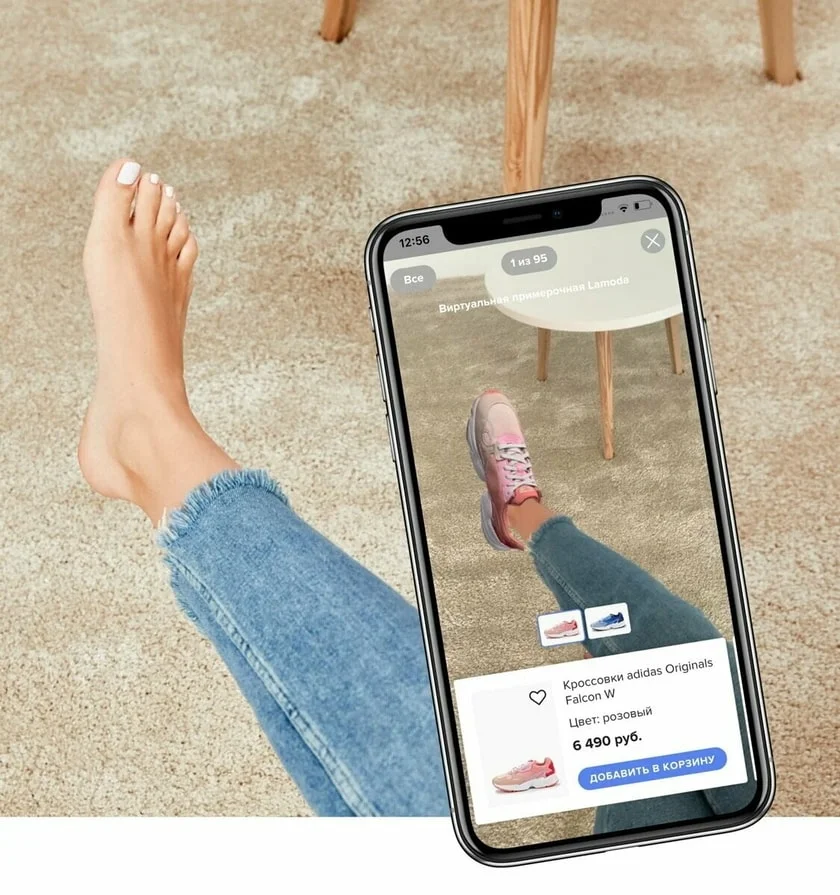
Need to gamify your app with Augmented Reality? Read how Emerline’s team designed an AR shopping app for our client.
Airbnb
Airbnb is a good example that demonstrates the way a virtual community for generating leads can be built. The property management website offers their Japanese customers an opportunity to earn 1 point for every ¥200 spent on accommodation booking. Then users can spend them within a T-point alliance partners network. The campaign not only retains Airbnb users to stay but also generates more sales in the future.

Emerging Trends in E-commerce Gamification (2025-2030)
The future of gamification in e-commerce is dynamic and highly integrated with other cutting-edge technologies:
- AI-Powered Adaptive Gamification: Artificial Intelligence will enable hyper-personalized gamified experiences. AI algorithms will analyze individual user behavior, preferences, and progress to dynamically adjust challenges, rewards, and difficulty levels, ensuring maximum engagement and motivation. This moves beyond generic games to truly customized experiences.
- Metaverse and Immersive Shopping: As the metaverse evolves, e-commerce brands will create virtual storefronts and immersive shopping experiences. Gamified interactions within these virtual worlds, utilizing VR and AR, will allow customers to "play" their way through product discovery, brand interactions, and even virtual purchases with unique digital assets (NFTs).
- Blockchain and NFT Rewards: Blockchain technology will power transparent and secure loyalty programs through Non-Fungible Tokens (NFTs). Customers could earn unique digital collectibles, exclusive access tokens, or verifiable achievements as rewards, creating a new layer of ownership and prestige.
- Gamified Social Commerce: The integration of gaming elements directly into social media platforms for shopping will intensify. Think collaborative games where users team up to unlock discounts, live stream shopping events with interactive polls and rewards, or user-generated content challenges with prizes.
- "Phygital" Gamification: Blending physical and digital experiences, "phygital" gamification will become more common. This could involve in-store scavenger hunts activated by mobile apps, AR experiences that reveal digital content in physical stores, or product packaging with QR codes leading to interactive games and rewards.
- Predictive Gamification: Leveraging predictive analytics, e-commerce platforms will anticipate customer churn or disengagement and trigger specific gamified interventions to re-engage users before they leave.
- Micro-Animations and Sensory Feedback: Subtle visual and auditory cues (e.g., confetti for a completed purchase, satisfying sounds for unlocking a reward) will enhance the immediate gratification aspect of gamified interactions.
In a Nutshell
Though there are many e-commerce gamification strategies to apply, you should develop an appropriate approach that will satisfy your business demands. Keep in mind that using gaming marketing techniques randomly is not a good idea — analyze your target customers’ needs, understand their needs, and finally brainstorm activities that will appeal to them.
Do you have a gamification idea in your mind and need a reliable technology partner to help you implement it? Contact us to discuss your project details. Being flexible to clients’ needs, we are open to working based on different engagement models, be it staff augmentation or an offshore development center setup.
Updated on Jul 10, 2025
